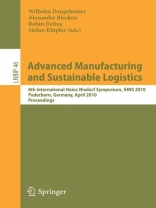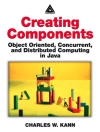Intimesofdecliningeconomicgrowth, companieshavetocontroltheircostsmore than ever to saveresources needed in the future. Regardless of the economic size of the company, the processes of production and logistics play a decisive role in stabilizing procedures and avoiding waste. Both are important cost drivers in manufacturing companies and therefore they o?er large potential savings. Pervasive networking in the last years has contributed to a hitherto unknown transparency of global markets. This harmonization opened up new possibilities of entering foreign markets for procurement and sales to the companies. The emerging global procurement strategy was understood as a chance to rethink the relocation of existing production facilities to pro?t from existing di?erences in price and performance as a resource-saving factor. Many companies tended towards a reduction of their vertical integration by outsourcing sections of their value chain. These contracted services of production result in higher transport volumes, increased complexity of supply processes and new requirements on – gistic networks. This trend of outsourcing has not stopped, but is slowing down noticeably. Additionally, thereisanincreasingproportionofcompaniesrestoring business units that were outsourced before. Reasons for turning back decisions are often to be found in missed goals. It is not unusual that important cost f- tors were disregarded in the original basis of decision-making. In the meantime many companies have realized that it is easier to achieve stability of processes and therewith a control of costs by increasing their own contribution to p- duction. Especially in times of under-utilized capacities like in the current crisis, insourcingcanbeastrategicoption.
Jadual kandungan
Keynotes.- A Concept for an Accurate and Closely Coordinated Production.- A Mesoscopic Approach to the Simulation of Logistics Systems.- Development of a Simulation Model for Multimodal, Cross-Company Logistics Networks.- Building Blocks as an Approach for the Planning of Adaptable Production Systems.- Challenges for the Provision of Process Data for the Virtual Factory.- Application of Operations Research Techniques to the Redesign of the Distribution Systems.- Simulation in Production and Logistics: Trends, Solutions and Applications.- Logistics in the Context of Humanitarian Operations.- Sustainable Process Management – Status Quo and Perspectives.- Supply Chain Management.- A Model for Quantifying Impacts of Supply Chain Cost and Working Capital on the Company Value.- Assessing the Effects of Assortment Complexity in Consumer Goods Supply Chains.- Dynamic Supply Loops – A Concept for Flexible and Faster Automotive Supply Network Management.- Development of a Lean Quality Management System: An Integrated Management System.- Integrated Adaptive Design and Planning of Supply Networks.- Lean Intra-corporate Supply Chain Management for Complex Organizations.- Up-to-Date Supply Chain Management: The Coordinated (S, R) Order-Up-to.- Production Logistics/Industrial Engineering.- Towards an Integrated Virtual Value Creation Chain in Sheet Metal Forming.- Using ISO 10303-224 for 3D Visualization of Manufacturing Features.- Combined Working Time Model Generation and Personnel Scheduling.- Knowledge Oriented Implementation of Collaborative Supply Chain Management.- Reference Modeling of an IT-Based Logistics System.- An Autonomous Control Concept for Production Logistics.- Towards Agile Business Processes Based on the Internet of Things.- Methods for the Calculation of CO2 Emissions in Logistics Activities.- Operations Research Techniques.- A p-Robust Capacitated Network Design Model with Facility Disruptions.- A Resource Based Mixed Integer Modelling Approach for Integrated Operational Logistics Planning.- Job Shop Scheduling with Buffer Constraints and Jobs Consuming Variable Buffer Space.- Maturity Progression Model for Sustainable Supply Chains.- Scenario Technique with Integer Programming for Sustainability in Manufacturing.- Modelling Post-carriage Transport Costs in Groupage Networks.- Discrete Lot-Sizing and Scheduling Including Deterioration and Perishability Constraints.- Humanitarian Logistics.- Developing and Maintaining Trust in Post-disaster Hastily Formed Networks.- Humanitarian Cluster Leads as Fourth-Party Logistics Providers.- Simulation.- An Efficient Heuristic Algorithm for the Traveling Salesman Problem.- Control of Disassembly Systems Based on the Division of Labour by Means of Dynamically Adapting Routing Plans.- Integrated Production Program and Human Resource Allocation Planning of Sequenced Production Lines with Simulated Assessment.- Simulation of Container Traffic Flows at a Metropolitan Seaport.- Simulation of ITSM Processes as Training Tool Set.












